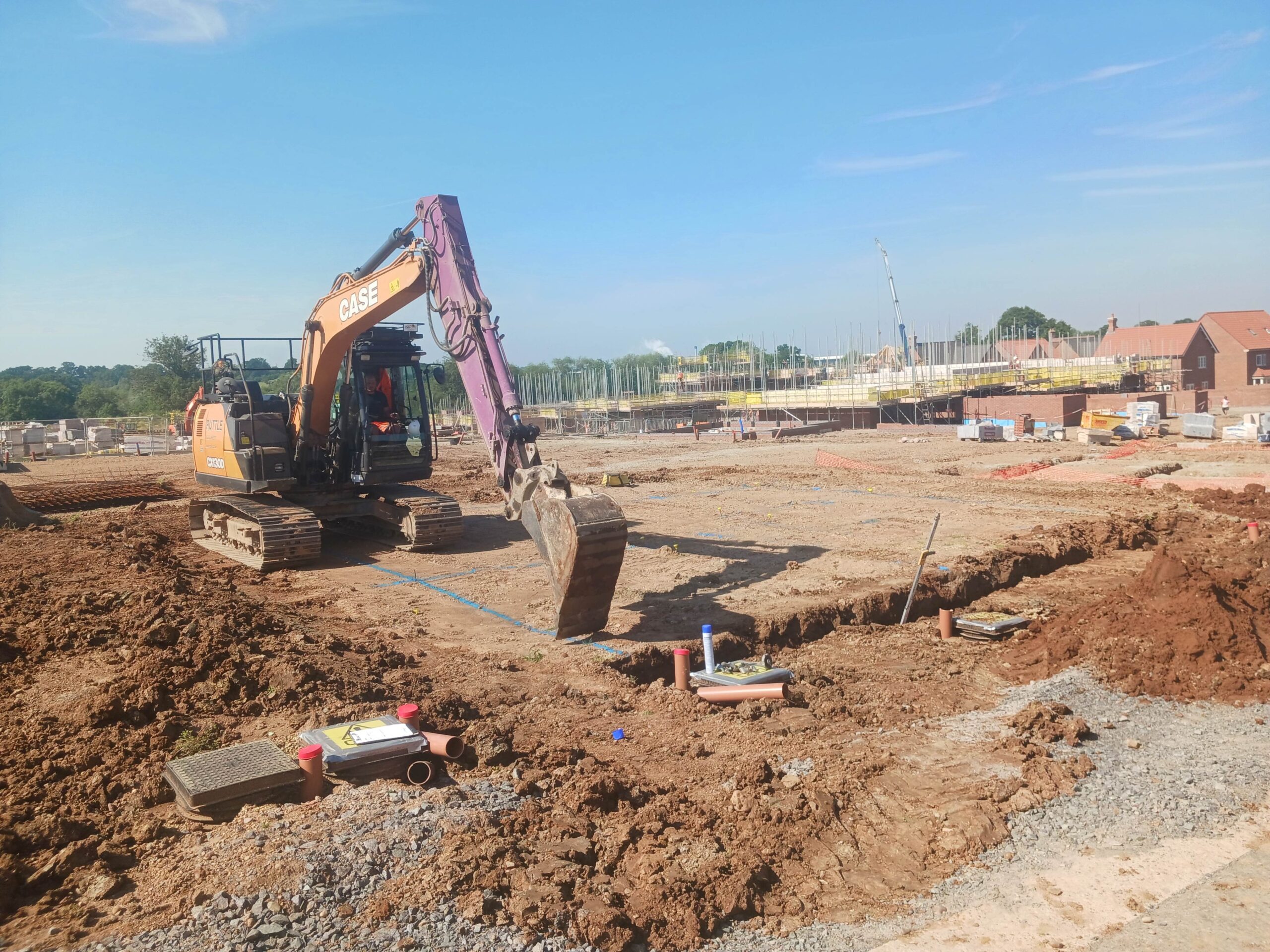Despite a couple of brief interludes, the country has been basking in some lovely hot weather with higher temperatures and limited rainfall.
Given the dry spell, GRM’s Site Inspectors, supplemented by our Geologists, have been very busy keeping up with our clients’ building foundation programmes. They have also been reminded to keep a specific eye out for dry clay, which is usually hard, friable and may have cracking. This can be particularly visible where excavations have been left open, even for a short period of time.
Dealing with dry clay is relatively straightforward and can be achieved by a range of measures including:
- Deepening foundations through the desiccated zone.
- Using beam and block floors (if not already specified).
- Installing void former.
- Ensuring that dry material is not put against blockwork or under slabs.
The foundation design engineer should be consulted where dry clay soils are encountered at foundation depth to determine if the design needs to be revised.
We have also noticed that to improve site safety, some clients pour the foundations and then dig down the side of the foundation once the concrete has gone off to install lateral heave protection.
Given the recent increased numbers of foundation pours throughout the industry, internal supervision resources were stretched and checks on heave protection might have been missed.
So, this is a plea from all at GRM: Keep an eye out for dry friable soils at foundation design depths and ensure that heave precautions are installed as heave can start soon after pouring a foundation.
Further information on seasonal desiccation can be found in our recent series of three articles:
Summer Heat and Foundation Woes: The Impact of Seasonal Desiccation on UK Homes
Understanding the Impact of Existing and New Trees on Building Foundations
Foundation Design: Tackling Soil Desiccation for Low-Rise Housing
GRM can provide ground investigation, foundation design and site inspection services which can help manage the risks posed by seasonal desiccation, the rectification of which can be very costly. If you have any development or construction projects, then please get in touch to find out how we can help save both time and costs. Please use your main point of contact at GRM or for new enquiries email richard.upton@grm-uk.com or call 01283 551249.


